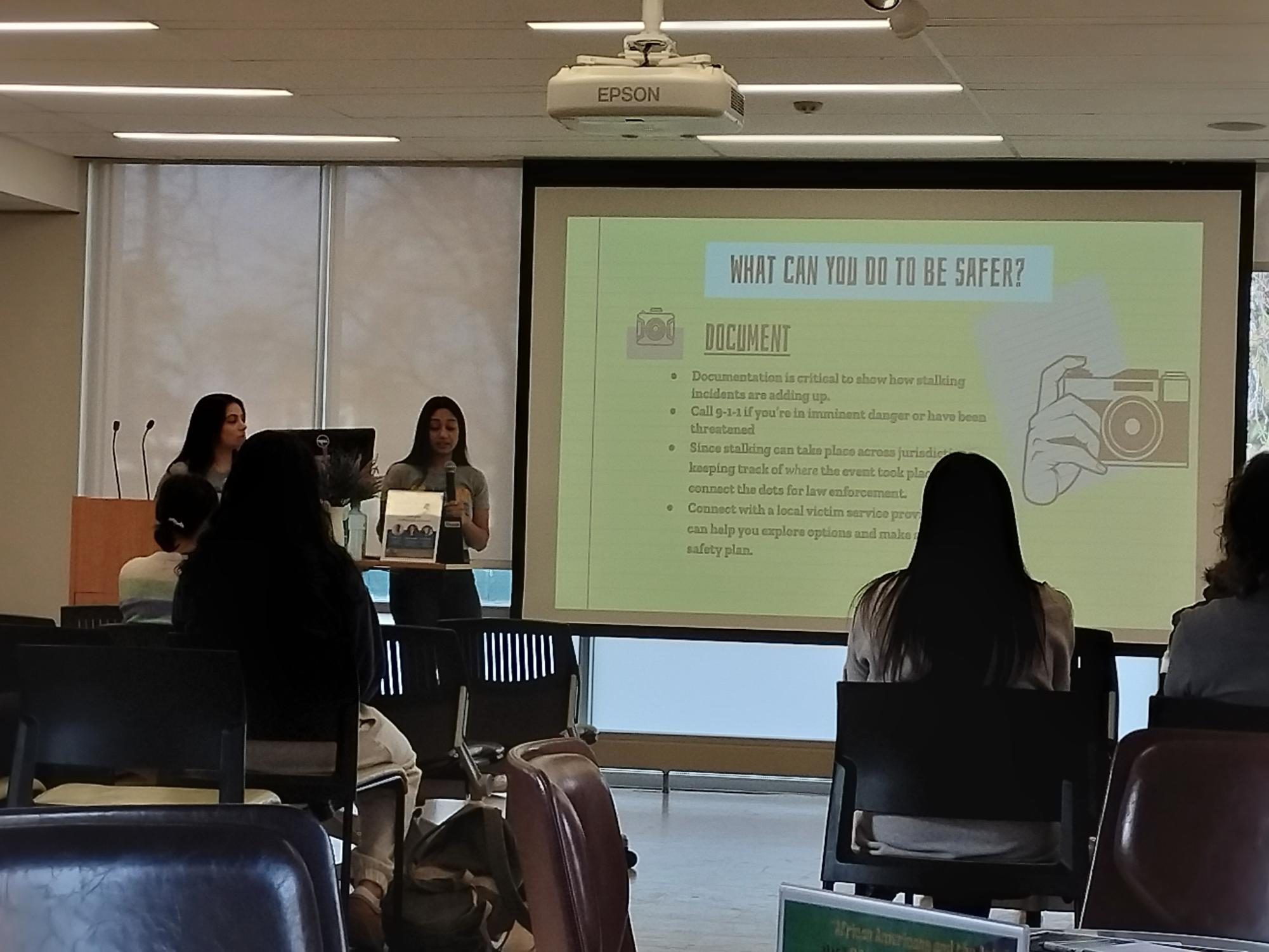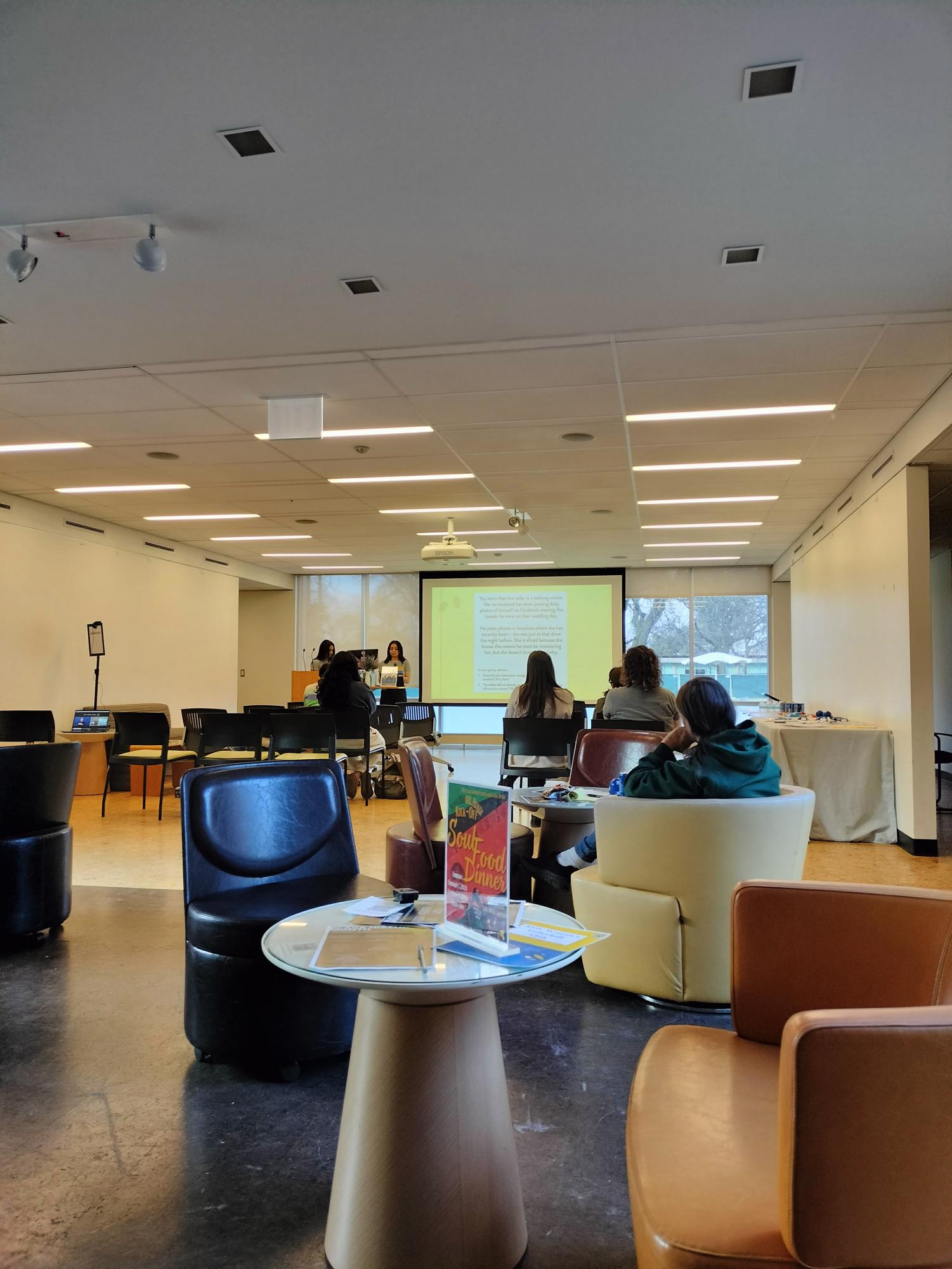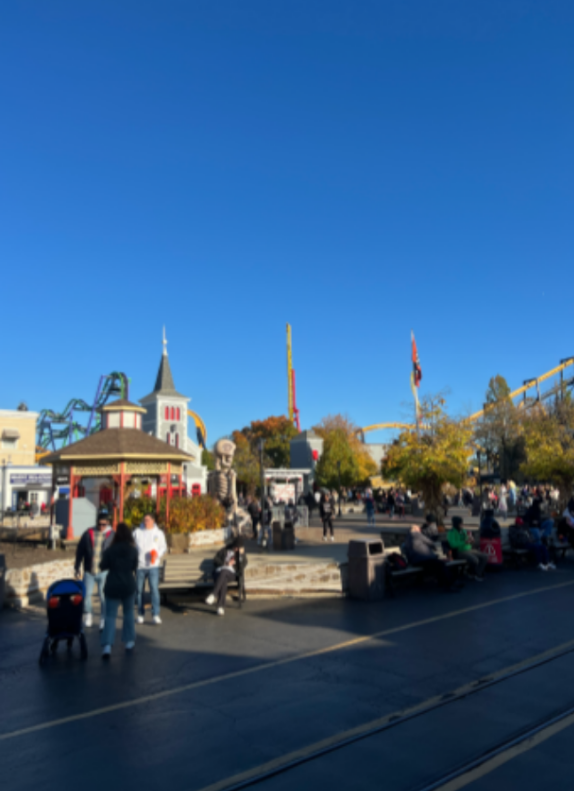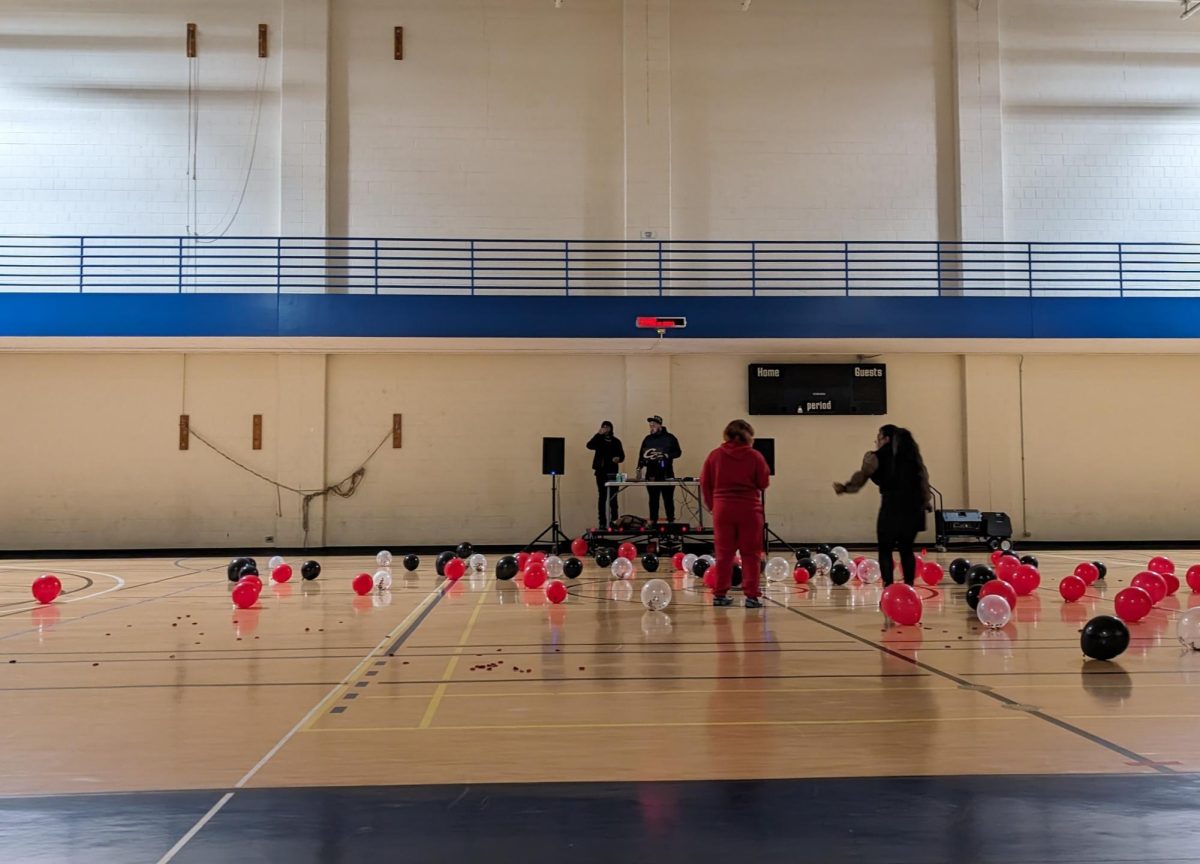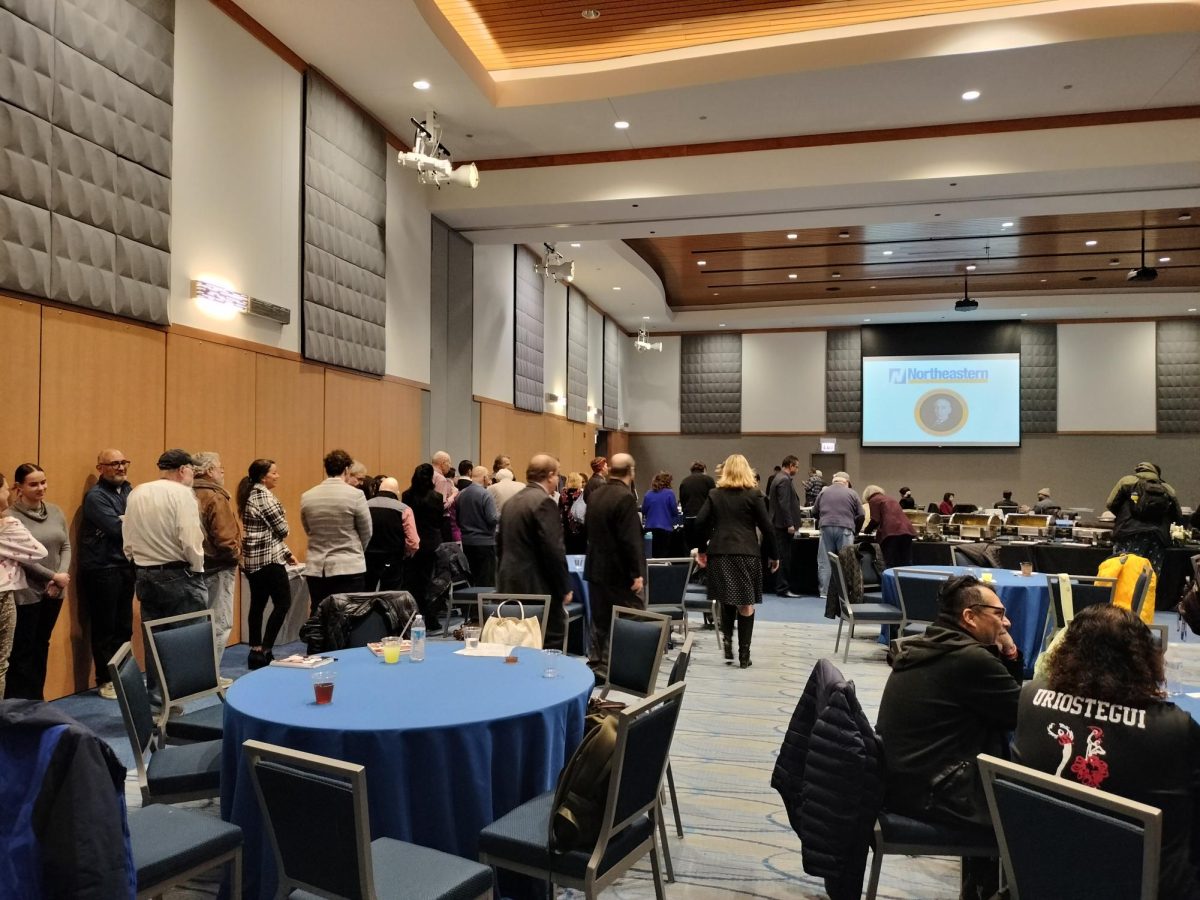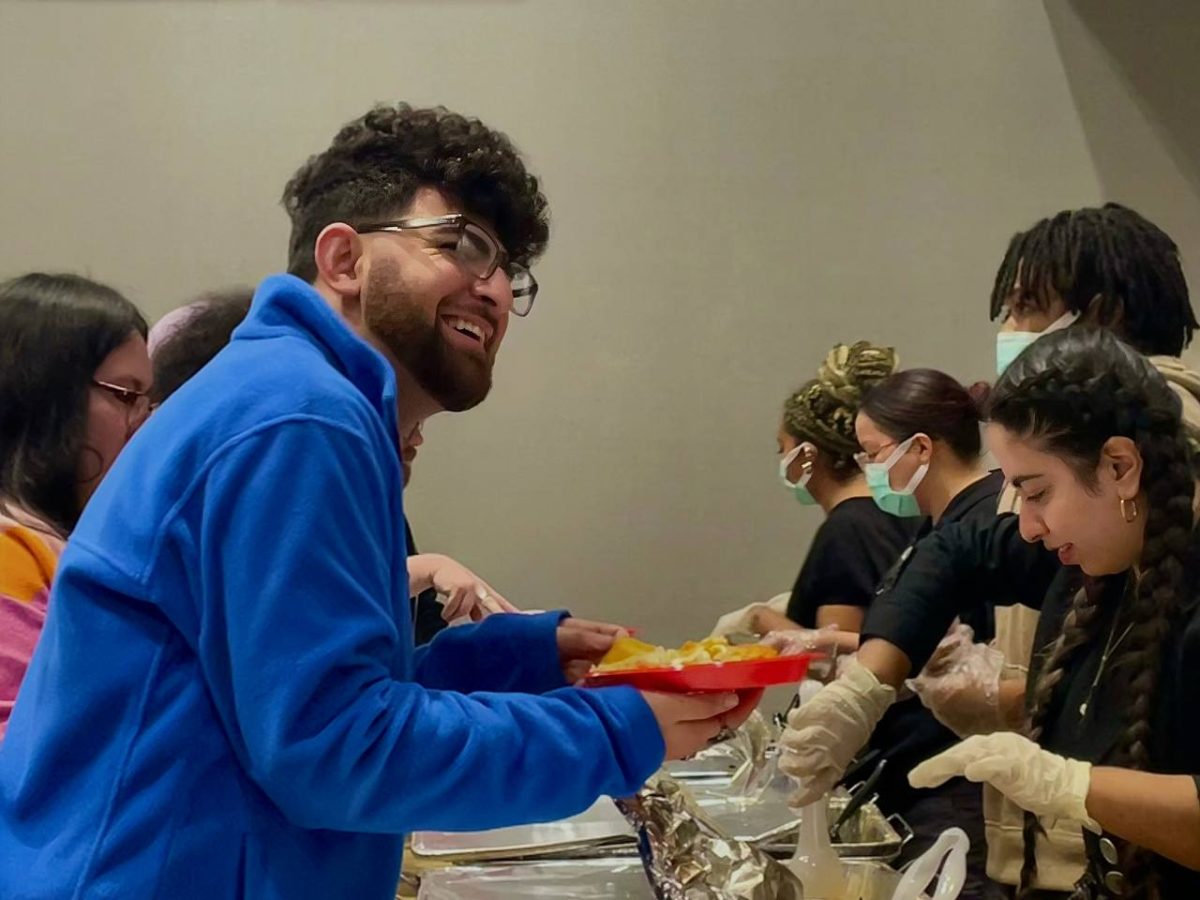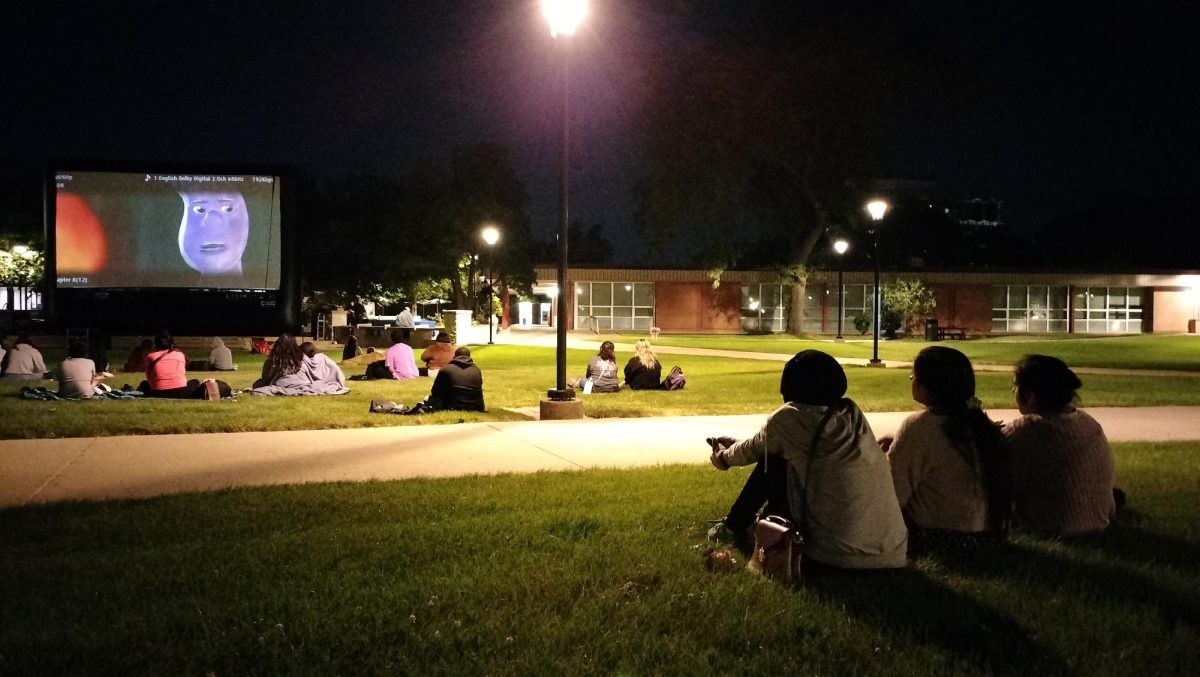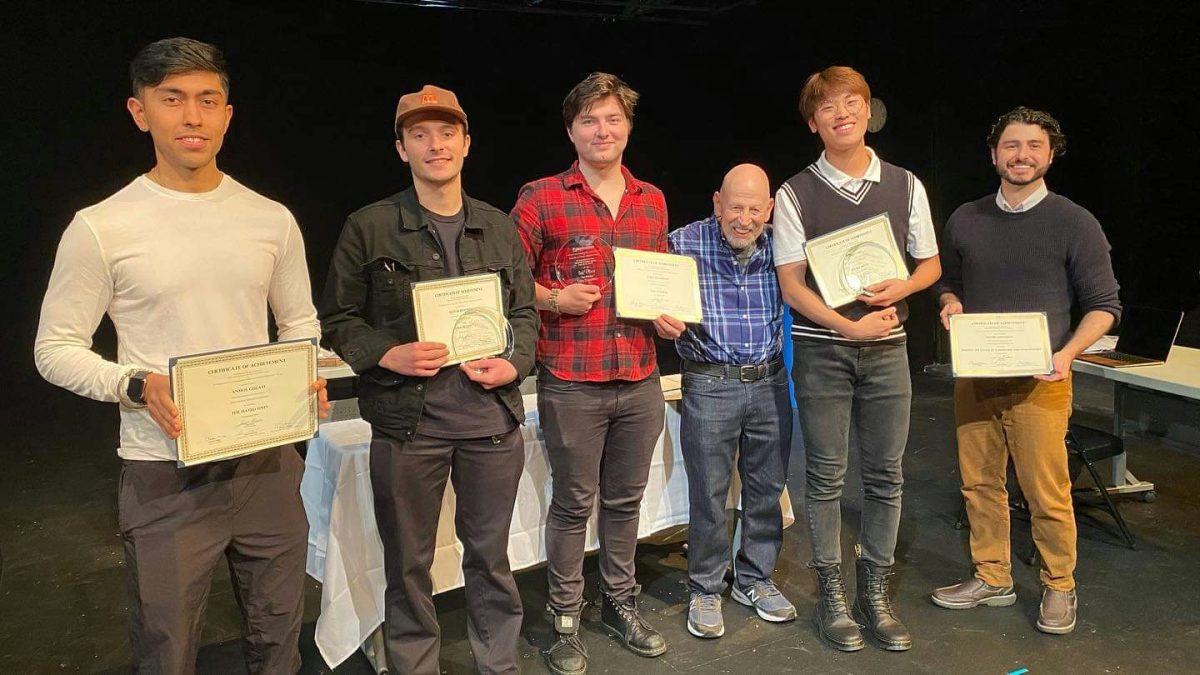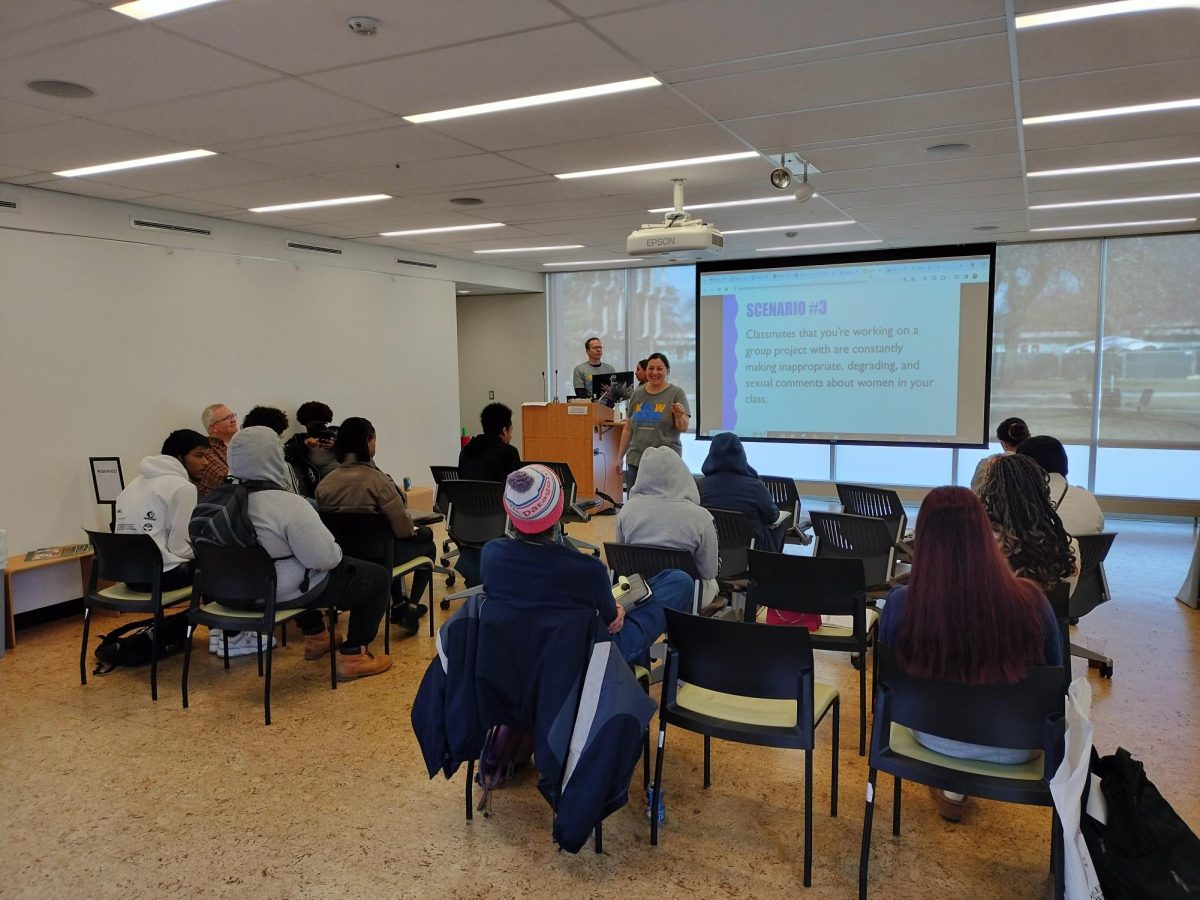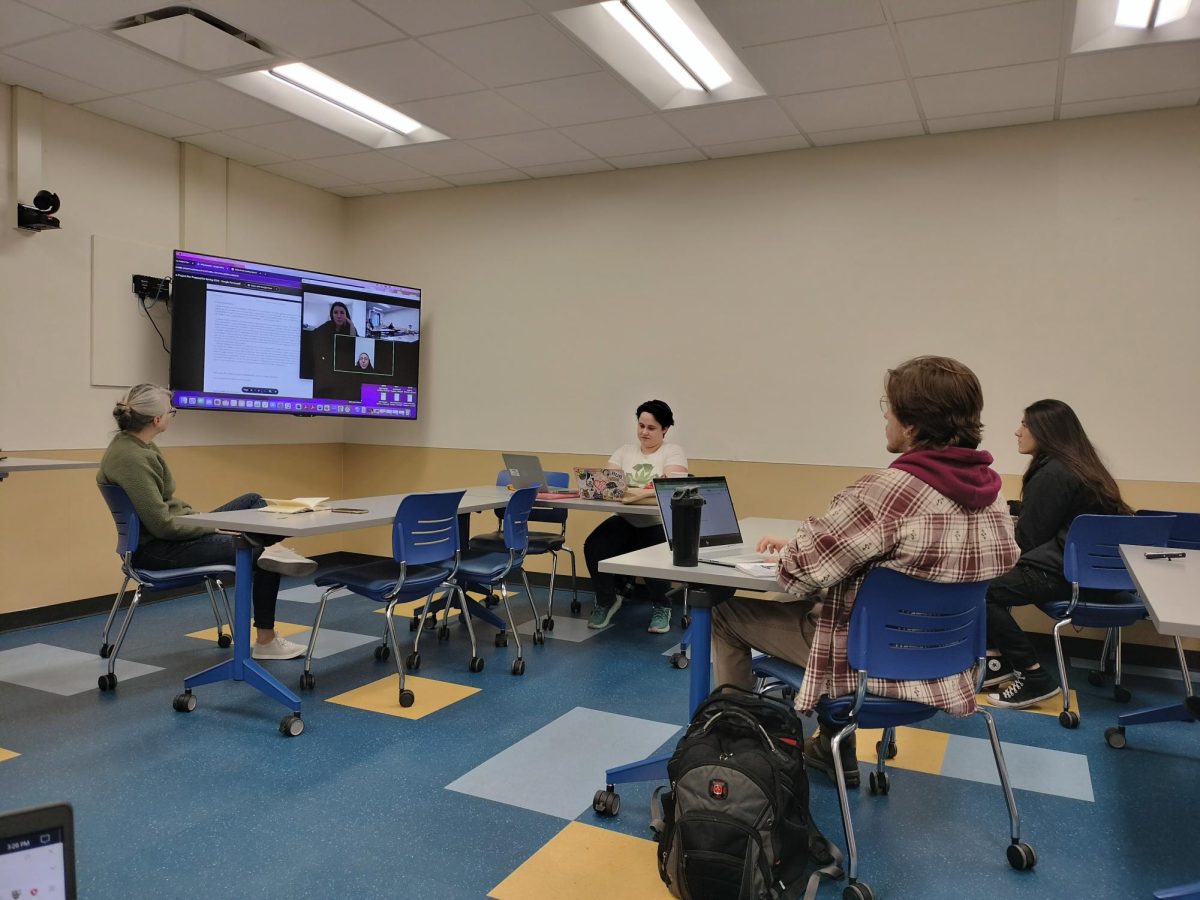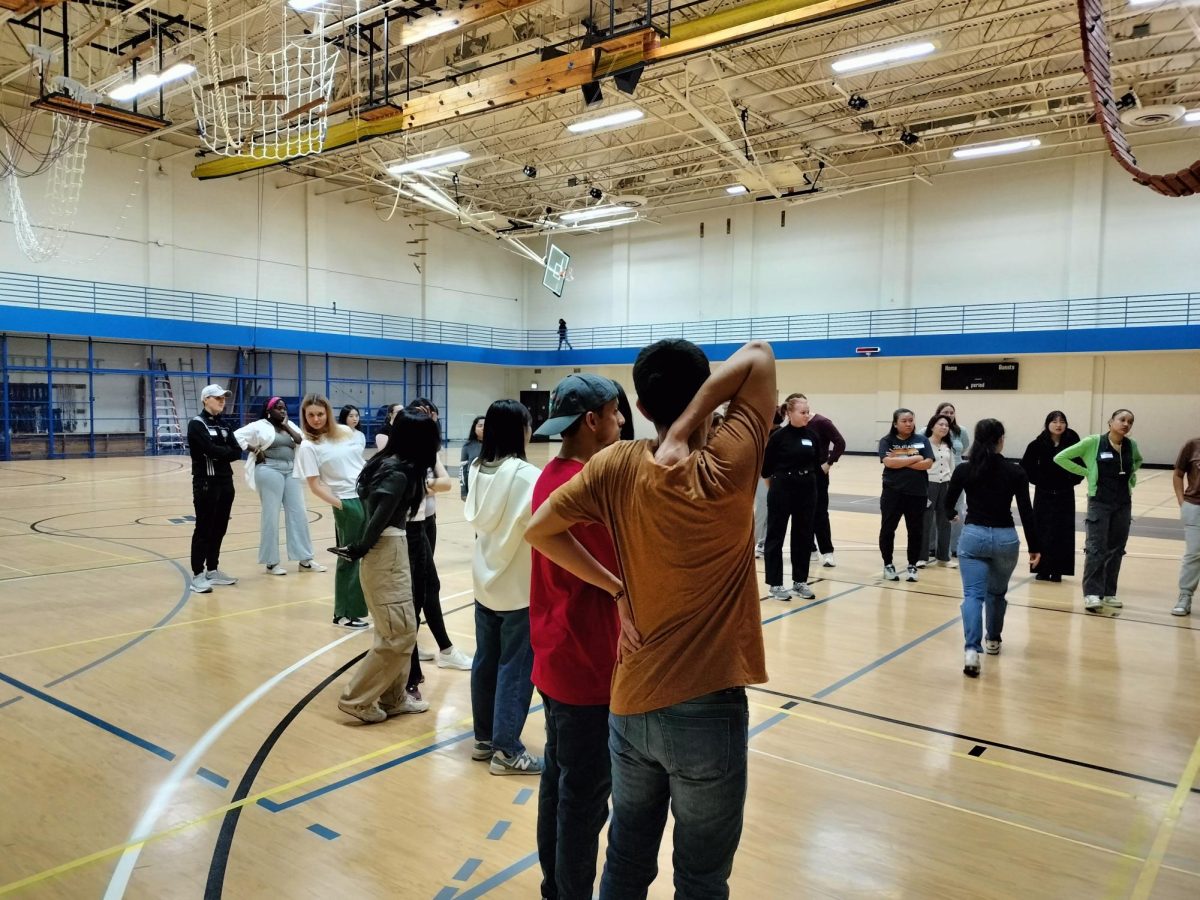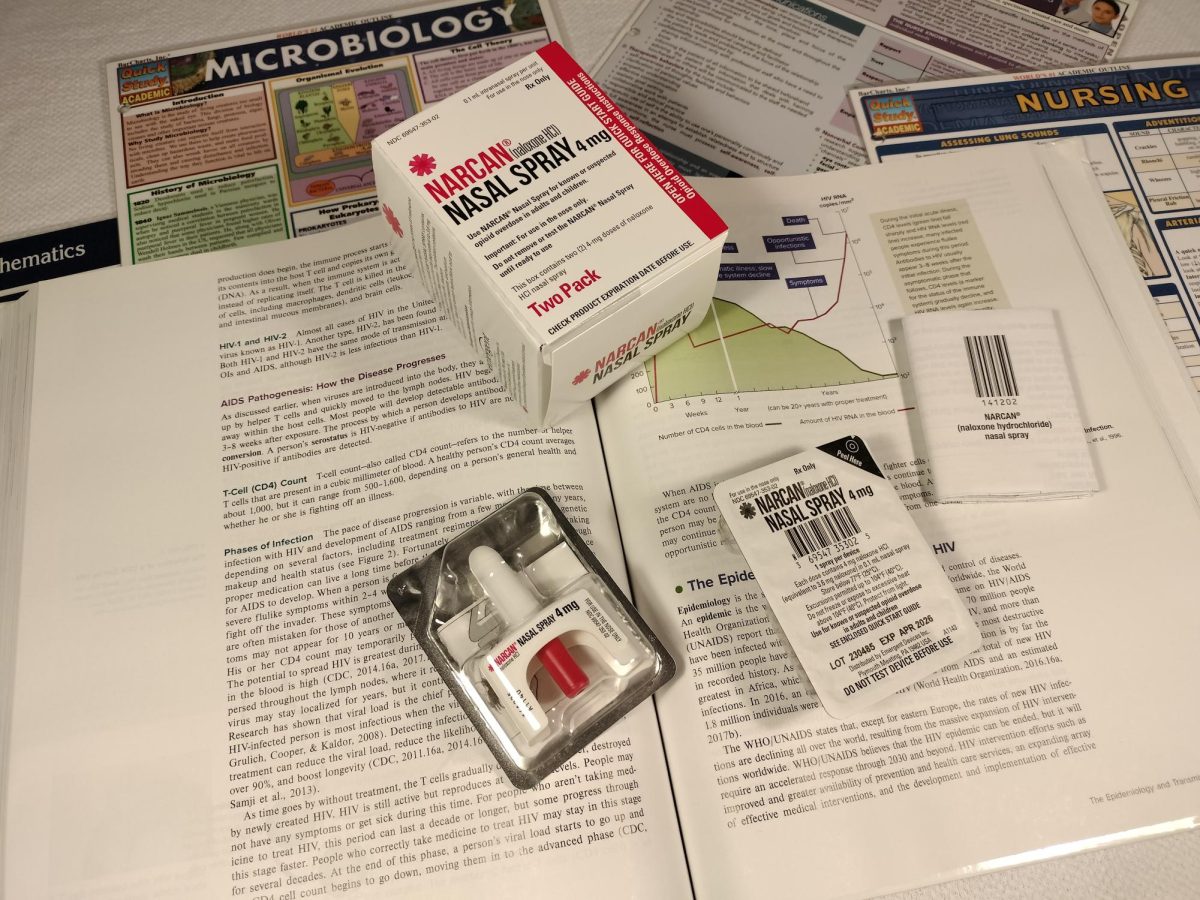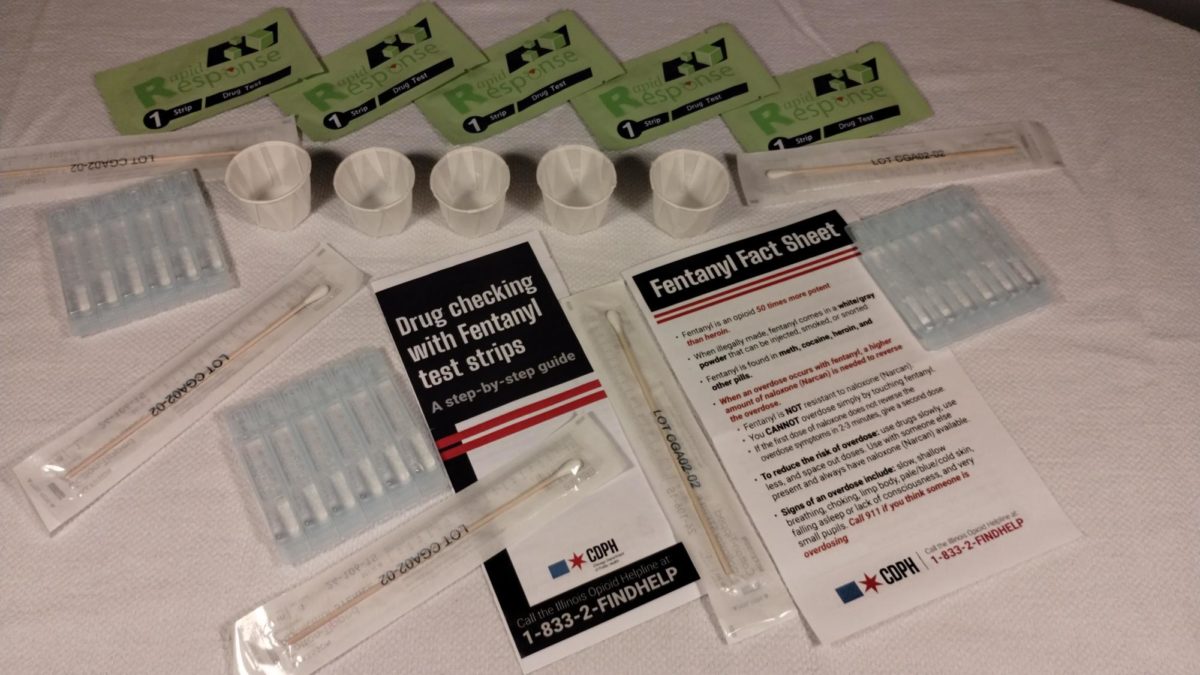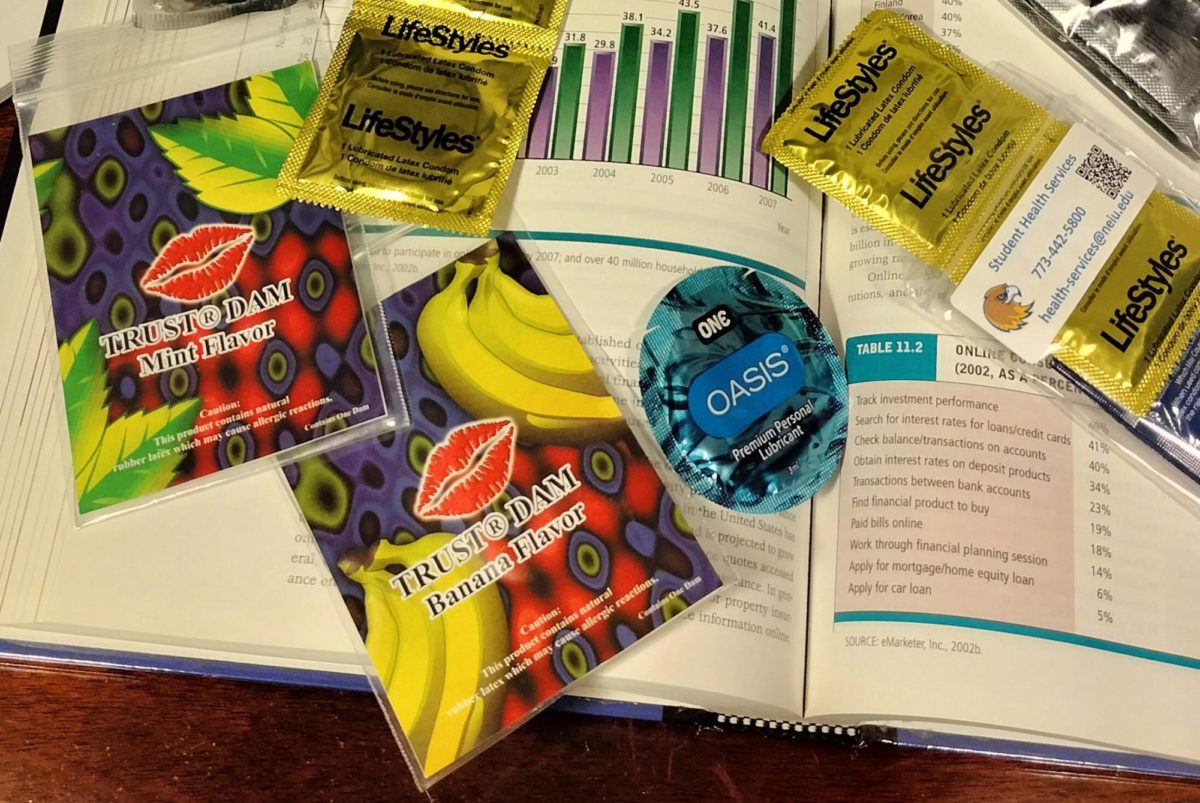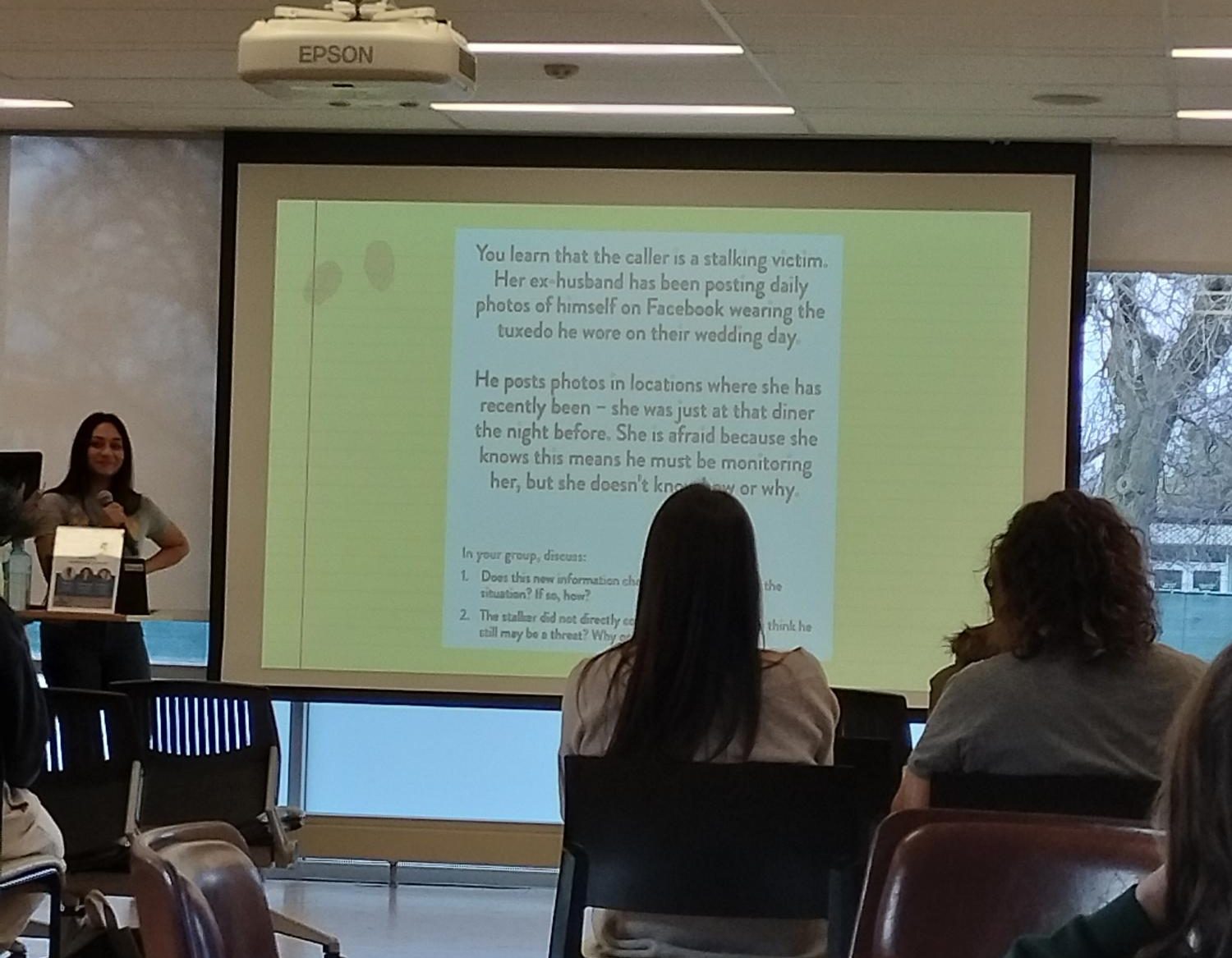
On Wed., Jan. 31, 2024, the K(NO)W MORE program and Pedroso Center hosted an educational workshop on stalking awareness by reviewing common misconceptions, definitions, laws, statistics, scenarios and the likely behaviors of stalkers and their victims. The workshop was an extension of last semester’s workshop about recognizing unhealthy relationship patterns.
The workshop was a collaboration between Student Counseling Services (SCS), Student Disability Services (SDS) and the campus’s three confidential advisors. The workshop’s information was relayed from the national organization, Stalking Prevention Awareness and Resource Center (SPARC), with the purpose of prevention and awareness of domestic violence, as well as sexual assault and stalking incidents, said Annette Brandt, K(NO)W MORE Program Coordinator.
Materials were chosen from SPARC because “it [featured] stories about real people,” said Brandt, and “accessing resources.”
According to SPARC and the K(NO)W MORE team, 33% of women and 17% of men will become victims of stalking during their lifetime, 40% of stalking victims have been stalked by past or current romantic partners, while 42% of stalking victims have been stalked by acquaintances.
The workshop cleared the misconceptions about stalkers by explaining how ignoring stalking behaviors will worsen over time, grow in severity, and may become violent without intervention from fellow advocates, community resources, victim service providers, law enforcement officials or court orders. Stalking can occur through in-person and virtual methods like emails, texts, calls and video chats.
The challenges of creating an educational workshop are often “Finding good evidence-based resources for this issue because it’s not as prevalent,” Brandt said. “Other challenges have been to make it more accessible.” Brandt partnered with Student Disability Services by bringing in an American Sign Language interpreter as a way to give greater access to all workshop participants.
“People with disabilities experience gender violence at higher rates than people without disabilities and they’re often believed less, so they’re not taken as seriously,” Brandt said. “People with disabilities in the media are often portrayed as the threat or as the danger [instead of] the ones in danger…in fact, [individuals with disabilities] are more likely to be the victim of crime than they are to be the perpetrator of crime,” Brandt said.
Pallavi Parida and Sandy Nano, SCS’s externs, define stalking as, “A pattern of behaviors directed at a specific person or people that would cause a reasonable person to fear for their safety or the safety of others or suffer substantial emotional distress.”
When being stalked, emotional distress may be masked by anger, frustration, annoyance, irritation or hopelessness, said Parida and Nano.
According to Parida and Nano, stalkers may target friends and family members of the stalking victims in an attempt to get unsuspectingly close to the real victim. The earliest signs of stalking behavior are often portrayed as texting or ringing a doorbell, but stalkers could escalate their behavior sooner or later, said Parida and Nano.
When victims suspect stalking behavior, the victims often seek help from a family member or friend first before taking action against the stalker, but mitigation only happens when the victims receive validation for their fears of the stalker’s severity, according to Parida and Nano.
Domestic violence and harassment are characteristics of patterns of escalated stalking behavior. The legal term for “pattern of behavior” is course of conduct, Parida and Nano said. Parida and Nano gave the example of an ex-boyfriend who may leave a bouquet of flowers on the ex-girlfriend’s doorstep. While the bouquet may look innocent to passersby, the stalking victim would feel a sense of being followed or running into a dangerous ex-boyfriend at unexpected times.
“One observation that I made is I think that some people looked even a little scared or timid coming into the room compared to some other workshops that I’ve done,” Brandt said. “I’m not sure if that’s because they have been victims of this and the anticipation of hearing about it or talking about it can be scarier, or if just the topic itself is scary to even think about.”
When in doubt about a possible stalking situation, Brandt recommends students talk to one of the three available confidential advisors on campus because all NEIU staff, student staff and faculty members are mandated reporters. By talking to a confidential advisor first, students become empowered to have a choice in whether to proceed with a Title IX investigation, file a police report or come forward to a mandated reporter on campus.
The Stalking Awareness Workshop hosted by the K(NO)W MORE program in the Pedroso Center was only the start of several more educational endeavors. Upcoming events in the Pedroso Center include weekly barbershop talks with Dr. DeWitt Scott, director of Angelina Pedroso Center for Diversity and Intercultural Affairs, during Black History Month every Wednesday from 4:30 to 6 pm. A film viewing of Chi-Raq by Spike Lee will be viewed with a post-discussion on Feb. 21, 2024. According to Brandt, there are also plans to host an event at the CCICS campus later this semester, and as April is Sexual Assualt Awareness Month, the program will feature events related to sexual assault.
